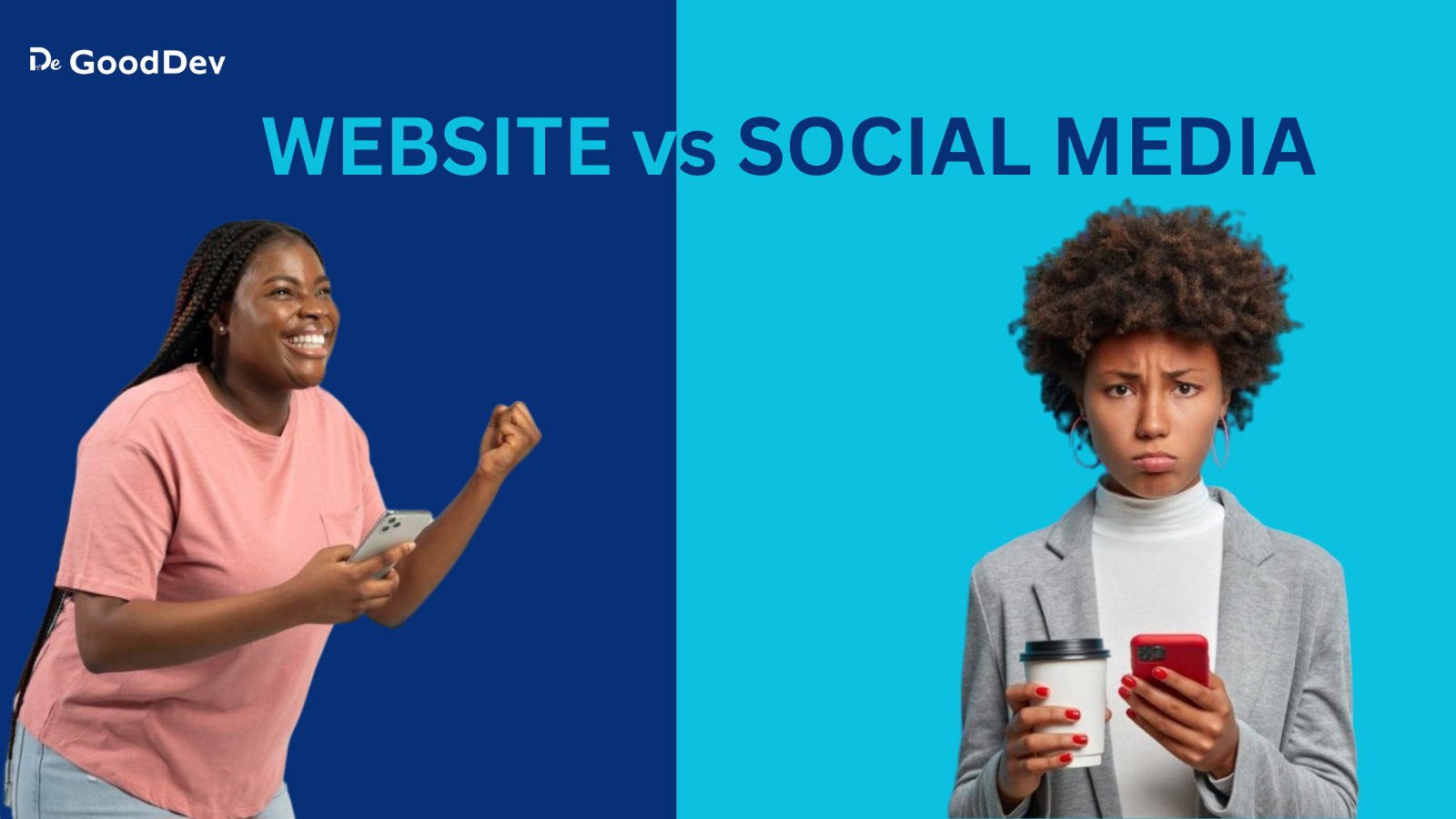In today’s digital age, businesses must establish a strong online presence to stay competitive. While social media platforms offer businesses a quick way to engage with their audiences, a dedicated website remains essential for long-term success. Deciding whether to focus on one or the other can be challenging, but the truth is, both have distinct benefits. Here’s a breakdown to help you understand the strengths of each and why integrating both into your strategy can offer the best results.
1. Control Over Your Content
- Website: With a dedicated website, you have complete control over your content, design, and user experience. Your website reflects your brand’s identity without limitations imposed by third-party platforms. You can customize every aspect, from layout to SEO, to meet your business needs.
- Social Media: Platforms like Facebook, Instagram, and LinkedIn allow businesses to connect directly with audiences but come with restrictions. You're limited by platform algorithms, design templates, and ever-changing policies. While these platforms can be visually engaging, you don't have full ownership over your content.
Verdict: A website offers complete autonomy, while social media platforms restrict how you present your business.
2. Reach and Visibility
- Website: A website helps you build long-term visibility, especially when it’s optimized for search engines (SEO). People searching for products or services related to your business will likely find your site through Google or other search engines. However, websites don’t automatically attract visitors—you’ll need to invest in driving traffic.
- Social Media: Social media provides instant access to a large audience. With billions of users globally, you can reach potential customers much faster than through organic search engine traffic. Social media algorithms also help content go viral and get shared, increasing visibility exponentially.
Verdict: Social media excels at offering quick, broad exposure, while a website builds long-term, reliable traffic through SEO and branding.
3. Credibility and Professionalism
- Website: Having a professional website lends credibility to your business. It shows potential customers that you’re established and reliable. A well-designed website with detailed information about your services, customer reviews, and contact details makes your business appear more legitimate.
- Social Media: Social media is great for engagement but doesn’t offer the same level of professionalism. While businesses can create polished profiles, some customers may be wary of businesses that only exist on social media. A website reassures visitors that your business is trustworthy.
Verdict: A website is essential for establishing professional credibility, whereas social media alone can lack that authoritative feel.
4. Engagement and Interaction
- Website: While a website can include interactive features like contact forms, live chat, and customer reviews, it’s often not as interactive as social media. People generally visit websites for information rather than ongoing conversations.
- Social Media: Social media platforms are designed for two-way communication. You can interact with followers in real-time through comments, direct messages, and posts, making it easier to engage with your audience. This level of interaction can build brand loyalty and trust.
Verdict: Social media is more effective for real-time engagement and communication with your audience, while a website serves more as an information hub.
5. Sales and Conversion
- Website: A website can be fully optimized for sales. With an eCommerce platform, you can sell products or services directly from your site. Payment gateways, user-friendly interfaces, and detailed product descriptions help convert visitors into customers.
- Social Media: While platforms like Instagram and Facebook now offer shopping features, they are limited compared to a fully-functioning eCommerce website. Social media is excellent for generating leads, but converting those leads often requires moving them to your website or another platform for completing purchases.
Verdict: A website is better for closing sales, while social media is great for lead generation.
6. Ownership and Control
- Website: Your website is entirely your own. No third-party platform can change its rules, remove your content, or limit your reach. You are in control of your data and how it’s used.
- Social Media: When you rely solely on social media, you are at the mercy of the platform’s rules and algorithms. Accounts can be suspended, and reach can be limited, which means you risk losing your audience if the platform changes its policies or trends shift.
Verdict: A website gives you full ownership, whereas social media platforms come with risks of changing policies or restrictions.
7. Costs
- Website: Building and maintaining a website requires an upfront investment. You’ll need to purchase a domain, pay for hosting, and possibly hire a developer or designer to create and update the site.
- Social Media: Creating a profile on most social media platforms is free. However, advertising and boosting posts to increase visibility comes with costs. While it may seem cheaper upfront, the long-term costs of paid social media advertising can add up.
Verdict: A website may have higher initial costs, but social media can incur ongoing expenses, especially for businesses relying on paid ads.
Why You Need Both
In a competitive business landscape, having both a website and a social media presence is crucial. They serve different purposes but complement each other in creating a comprehensive digital strategy.
- Your Website serves as your primary hub for detailed information, credibility, and sales.
- Social Media acts as a dynamic space for engagement, brand awareness, and reaching new customers.
By integrating both, you can maximize visibility, engage your audience, and drive conversions in a well-rounded, strategic manner. Having a website provides stability and professionalism, while social media allows you to engage directly with your audience in real time.
